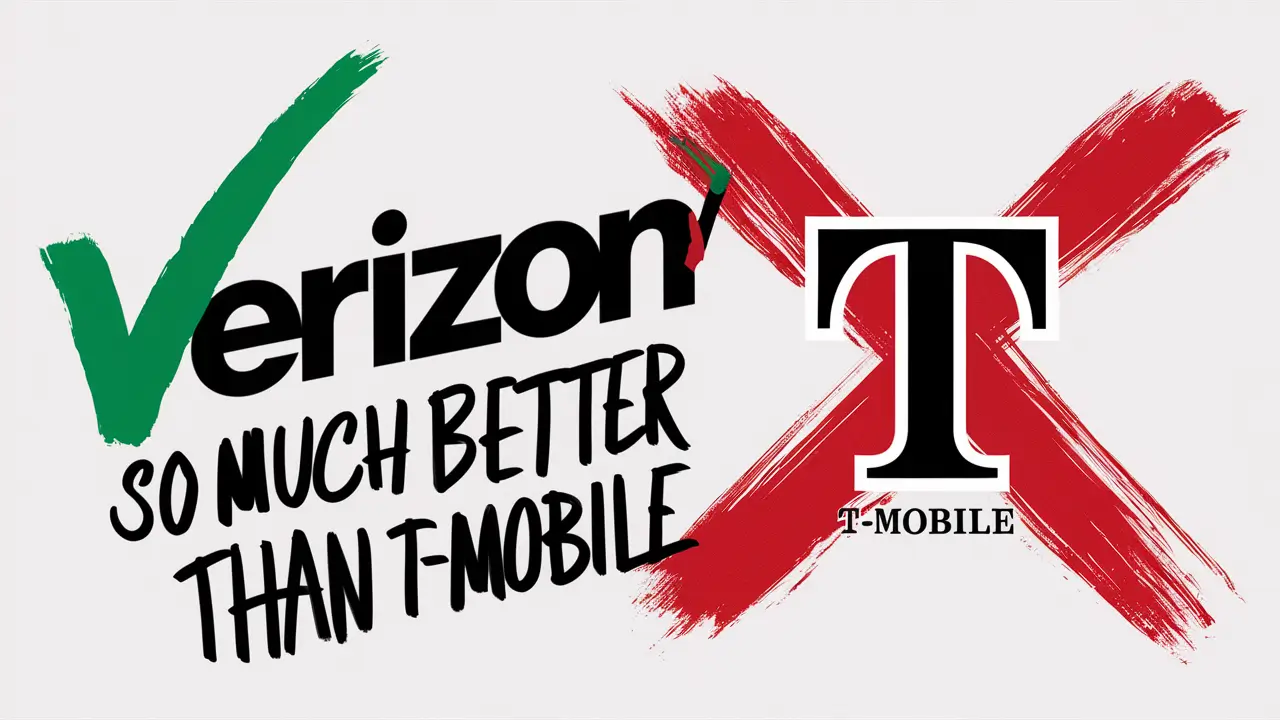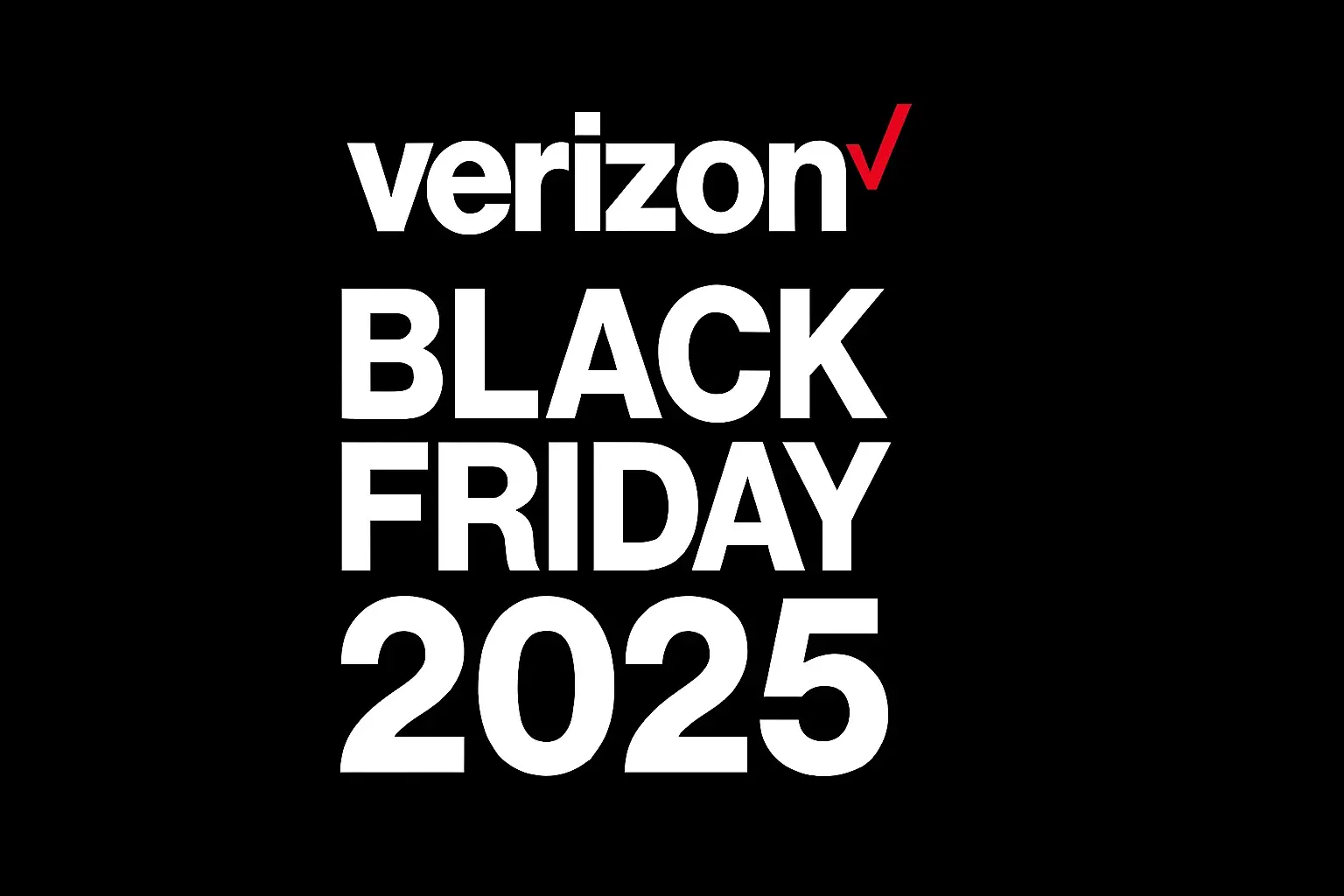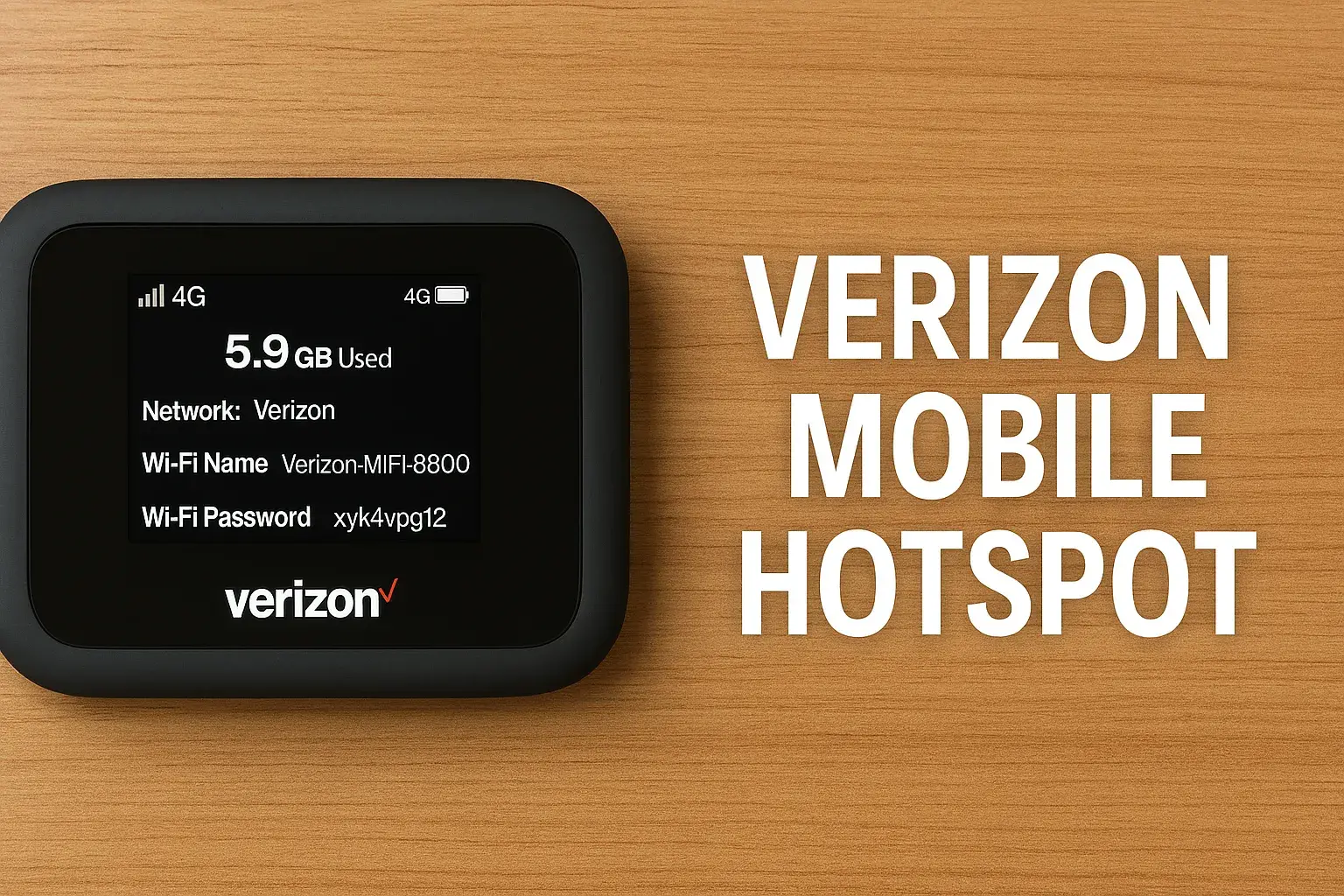Why is Verizon so much better than T-Mobile?

In today’s fast-paced, connected world, choosing the right mobile carrier is critical for seamless communication, whether you’re streaming, working remotely, or staying in touch while traveling. Verizon and T-Mobile are two of the largest carriers in the U.S., each with robust networks, diverse plans, and attractive perks. While both have their merits, this article explores why Verizon often emerges as the better choice for many users, focusing on coverage, network performance, plans, perks, and customer service. We’ll also address common questions in a FAQ section to help you make an informed decision.
1. Coverage: Verizon’s Unmatched Reliability
Coverage is the cornerstone of any mobile carrier’s value proposition, and Verizon excels in this area. According to WhistleOut, Verizon’s 4G LTE network spans 70% of the U.S., compared to T-Mobile’s 62% (WhistleOut Coverage Guide). This 8% difference translates to better reliability in rural areas, such as small towns in Wyoming, Montana, or Nebraska, where T-Mobile’s signal can be spotty. For example, a user on Reddit noted that in the Smoky Mountains, Verizon provided service where T-Mobile had none (Reddit r/verizon).
T-Mobile, however, leads in 5G coverage, with 49% of the U.S. covered compared to Verizon’s 21%. This makes T-Mobile a strong contender in urban and suburban areas where 5G is prevalent. Yet, 5G is still evolving, and many regions rely on 4G LTE for consistent connectivity. Verizon’s broader 4G LTE network ensures fewer dropped calls and better service in remote locations, making it the preferred choice for users who need dependable coverage across diverse settings.
Table: Coverage Comparison
|
Aspect |
Verizon |
T-Mobile |
|---|---|---|
|
4G LTE Coverage |
70% of the U.S. |
62% of the U.S. |
|
5G Coverage |
21% of the U.S. |
49% of the U.S. |
|
Rural Reliability |
Strong, consistent signal |
Spotty in small towns, hiking trails |
|
Urban/Suburban Strength |
Reliable, but less 5G reach |
Excellent 5G coverage |
Key Takeaway: Verizon’s superior 4G LTE coverage makes it the go-to choice for rural users and those prioritizing reliability, despite T-Mobile’s lead in 5G coverage.
2. Network Performance: Speed vs. Stability
Both Verizon and T-Mobile offer 5G networks, but their technologies differ, impacting performance. Verizon’s 5G Ultra Wideband uses mmWave technology, which delivers blazing-fast speeds—up to 800Mbps in testing—but has a shorter range and struggles with building penetration (YourNavi). T-Mobile’s low-band 5G, by contrast, covers more areas but averages slower speeds, around 100Mbps (WhistleOut).
Verizon also has an edge in 5G upload speeds, with 20.4Mbps compared to T-Mobile’s 18.4Mbps, according to OpenSignal’s 2025 report (OpenSignal). This is crucial for tasks like video conferencing or uploading large files to the cloud. For urban users in areas with strong 5G signals, Verizon’s mmWave technology offers a premium experience. However, T-Mobile’s low-band 5G provides broader coverage, making it more practical for users in varied environments.
Table: Network Performance Comparison
|
Aspect |
Verizon |
T-Mobile |
|---|---|---|
|
5G Technology |
mmWave (fast, short range) |
Low-band (slower, longer range) |
|
5G Speeds (Download) |
Up to 800Mbps |
Around 100Mbps |
|
5G Upload Speeds |
20.4Mbps |
18.4Mbps |
|
Best Use Case |
Urban areas with strong signals |
Urban/suburban with wider coverage |
Key Takeaway: Verizon’s 5G is faster in covered areas, ideal for speed-focused users, while T-Mobile’s broader 5G reach suits those needing consistent coverage.
3. Plans and Pricing: Tailored Value
Pricing is a key consideration, and T-Mobile often has an edge for families and unlimited plan users. Its Essentials Saver plan starts at $55/month for a single line with unlimited talk, text, and data, while Verizon’s Unlimited Welcome plan begins at $65/month (Reviews.org). T-Mobile’s multi-line discounts, like its third-line-free promotion, make it particularly cost-effective for families.
However, Verizon shines for non-unlimited data users. Its prepaid plans range from $35 to $60/month, offering 15GB to 50GB of high-speed data, compared to T-Mobile’s Connect plans, which provide 5GB to 12GB for $15 to $35/month. For moderate data users, Verizon’s plans deliver more value. Additionally, Verizon’s mid-tier (Unlimited Plus, $70/month) and premium plans (Unlimited Ultimate, $90/month) include generous hotspot data (30GB and 200GB, respectively), surpassing T-Mobile’s offerings in some cases (YourNavi).
Table: Plan Comparison
|
Plan Type |
Verizon |
T-Mobile |
|---|---|---|
|
Cheapest Unlimited |
Unlimited Welcome: $65/month |
Essentials Saver: $55/month |
|
Prepaid Plans |
$35–$60 (15GB–50GB) |
$15–$35 (5GB–12GB) |
|
Hotspot Data |
30GB (Plus), 200GB (Ultimate) |
Varies (e.g., 60GB on Experience More) |
|
Multi-Line Discounts |
Available, less aggressive |
Strong, with free line promotions |
Key Takeaway: T-Mobile offers better pricing for families and unlimited plans, but Verizon provides more data for non-unlimited users and generous hotspot allowances.
4. Perks and Add-ons: Verizon’s Customization Edge
Verizon’s plans stand out for their flexibility, allowing users to add perks like the Disney Bundle (Disney+, Hulu, ESPN+), 100GB mobile hotspot, travel passes, cloud storage, smartwatch data, Walmart+ membership, Apple Music Family, or Apple One for $10 each (Reviews.org). This a la carte approach lets users customize their plans to match their needs, whether they’re streaming enthusiasts or frequent travelers.
T-Mobile includes perks like Netflix, Apple TV+, in-flight Wi-Fi, and international roaming in its plans, which is convenient but less flexible if you don’t need all the extras (Goji Mobile). For example, T-Mobile’s Experience Beyond plan ($105/month) offers satellite service and international texting, but these may not appeal to everyone. Verizon’s customizable perks make it a better fit for users who want specific benefits without paying for unnecessary ones.
Table: Perks Comparison
|
Perks |
Verizon |
T-Mobile |
|---|---|---|
|
Streaming Services |
Disney Bundle, Apple One ($10 each) |
Netflix, Apple TV+ (included) |
|
Hotspot Data |
Up to 200GB (add-on or plan-based) |
Varies, included in plans |
|
International Features |
Travel passes ($10) |
Free texting/data in 210+ countries |
|
Customization |
High, a la carte add-ons |
Low, perks bundled in plans |
Key Takeaway: Verizon’s flexible perks cater to specific needs, while T-Mobile’s bundled perks are better for users who want all-in-one plans.
5. Customer Service: A Tight Race
Customer service is vital for resolving issues like billing disputes or technical problems. T-Mobile is renowned for its friendly, approachable support, available through stores, online chat, and phone (Goji Mobile). Verizon, however, excels in technical support, particularly for complex issues, according to user feedback and J.D. Power’s 2021 study, where T-Mobile ranked first and Verizon second (HighSpeedInternet.com).
Anecdotally, some users report better experiences with Verizon at major events or in challenging environments, like stadiums, where its network holds up better (Reddit r/verizon). However, experiences vary, and T-Mobile’s accessibility makes it a strong contender.
Key Takeaway: T-Mobile is friendlier, but Verizon may have an edge in technical support, making it a close call based on your needs.
6. Additional Considerations: Bundles and Security
Verizon offers compelling mobile and internet bundles, such as 5G Home Internet (100–1,000Mbps, $50–$70/month) and Fios fiber (300Mbps–2Gbps, $50–$109.99/month), with discounts of $15–$25 for mobile customers. Fios’s low latency is ideal for gaming or video calls, giving Verizon an edge over T-Mobile’s 5G Home Internet (72–245Mbps, $50–$70/month) (Reviews.org).
Security is another factor. Verizon is recognized for its robust network security infrastructure, benefiting from decades of experience as a leading telecom provider (Efani). While T-Mobile also prioritizes security, Verizon’s established reputation may appeal to users concerned about data protection.
Conclusion
Verizon emerges as a strong choice for users who prioritize reliable coverage, especially in rural areas, and value customizable perks. Its 4G LTE network (70% coverage), fast 5G speeds in covered areas, generous prepaid plans, and robust technical support make it a top contender. While T-Mobile offers lower prices and broader 5G coverage, Verizon’s consistency and flexibility cater to a wide range of needs. To choose the best carrier, check coverage in your area using tools like WhistleOut’s maps (WhistleOut Coverage) and compare plans based on your usage.
Faq
Is Verizon really better than T-Mobile?
It depends on your priorities. Verizon offers superior 4G LTE coverage (70% vs. 62%) and reliability, especially in rural areas, while T-Mobile excels in 5G coverage (49% vs. 21%) and pricing for families. If consistent connectivity is key, Verizon is likely the better choice.
Which carrier has better coverage in rural areas?
Verizon’s 4G LTE network covers 70% of the U.S., compared to T-Mobile’s 62%, making it more reliable in rural areas like small towns or remote regions (WhistleOut).
Are Verizon’s perks worth the extra cost?
Verizon’s customizable perks, like the Disney Bundle or Apple One, are worth it if you value specific add-ons. T-Mobile’s bundled perks, like Netflix, are better for users who prefer all-in-one plans (Reviews.org).
How does Verizon’s 5G compare to T-Mobile’s?
T-Mobile has a larger 5G footprint (49% vs. 21%), but Verizon’s mmWave 5G is faster (up to 800Mbps vs. 100Mbps) in covered areas and has higher upload speeds (20.4Mbps vs. 18.4Mbps) (OpenSignal).
Is T-Mobile’s pricing really better for families?
Yes, T-Mobile’s multi-line discounts, like its third-line-free promotion, make it more affordable for families. However, Verizon’s prepaid plans offer more data for non-unlimited users (YourNavi).





